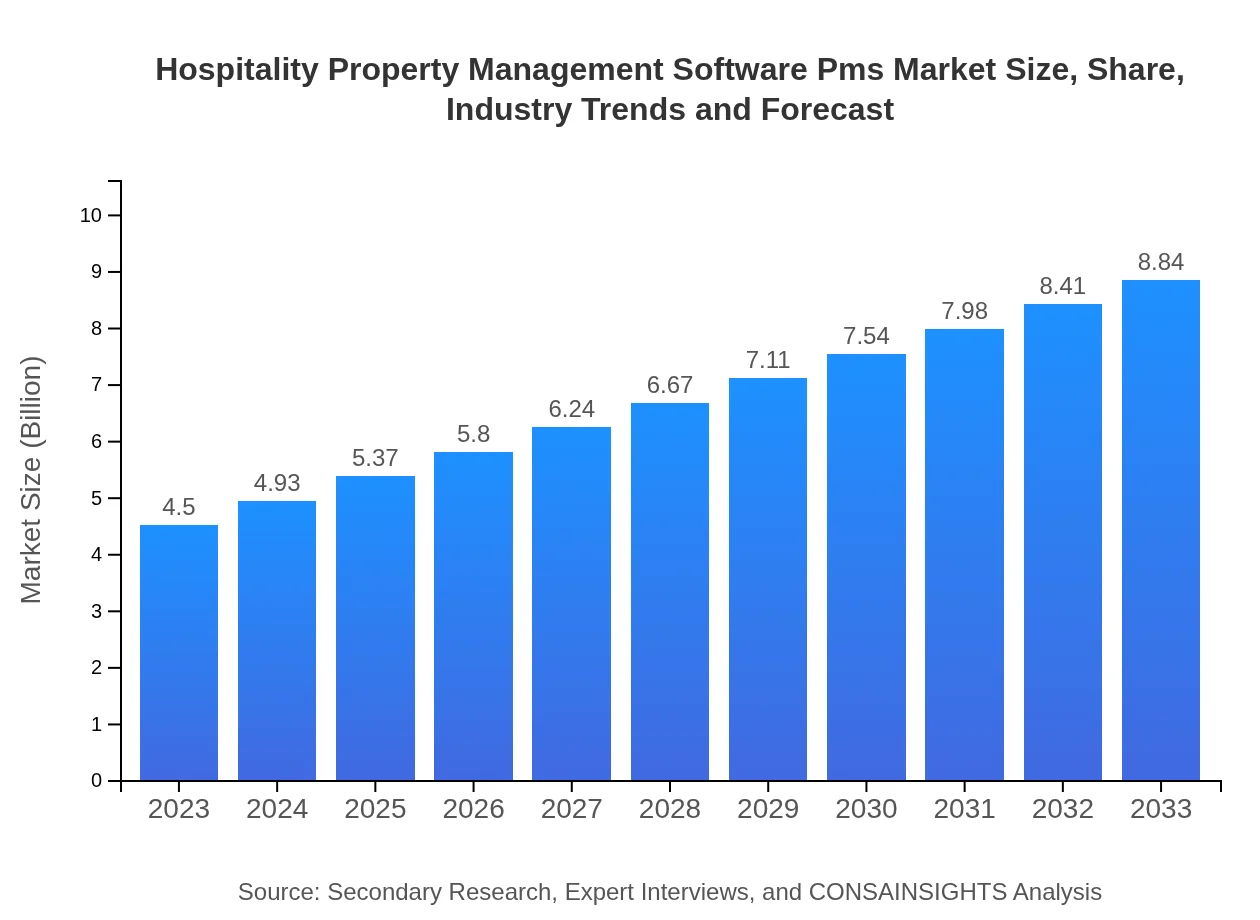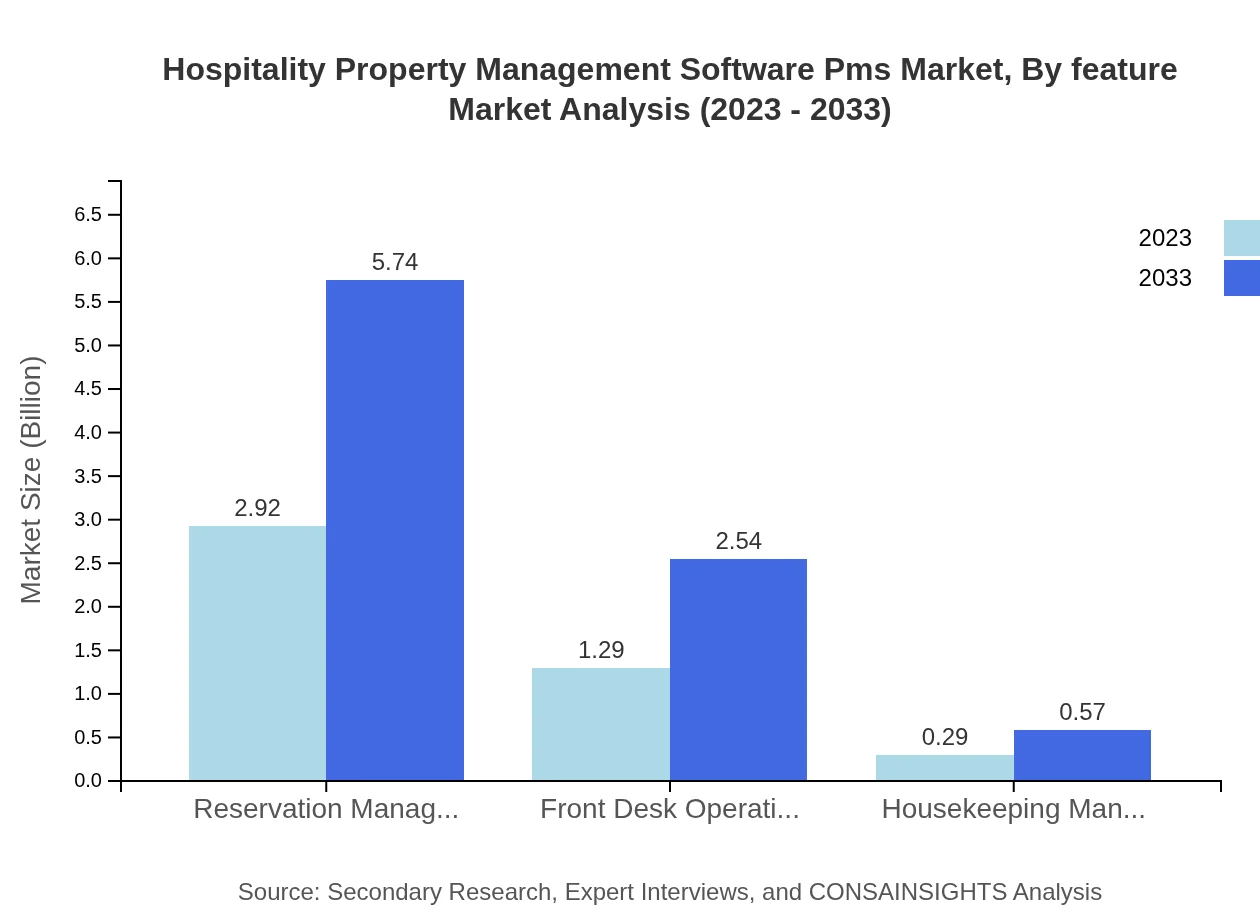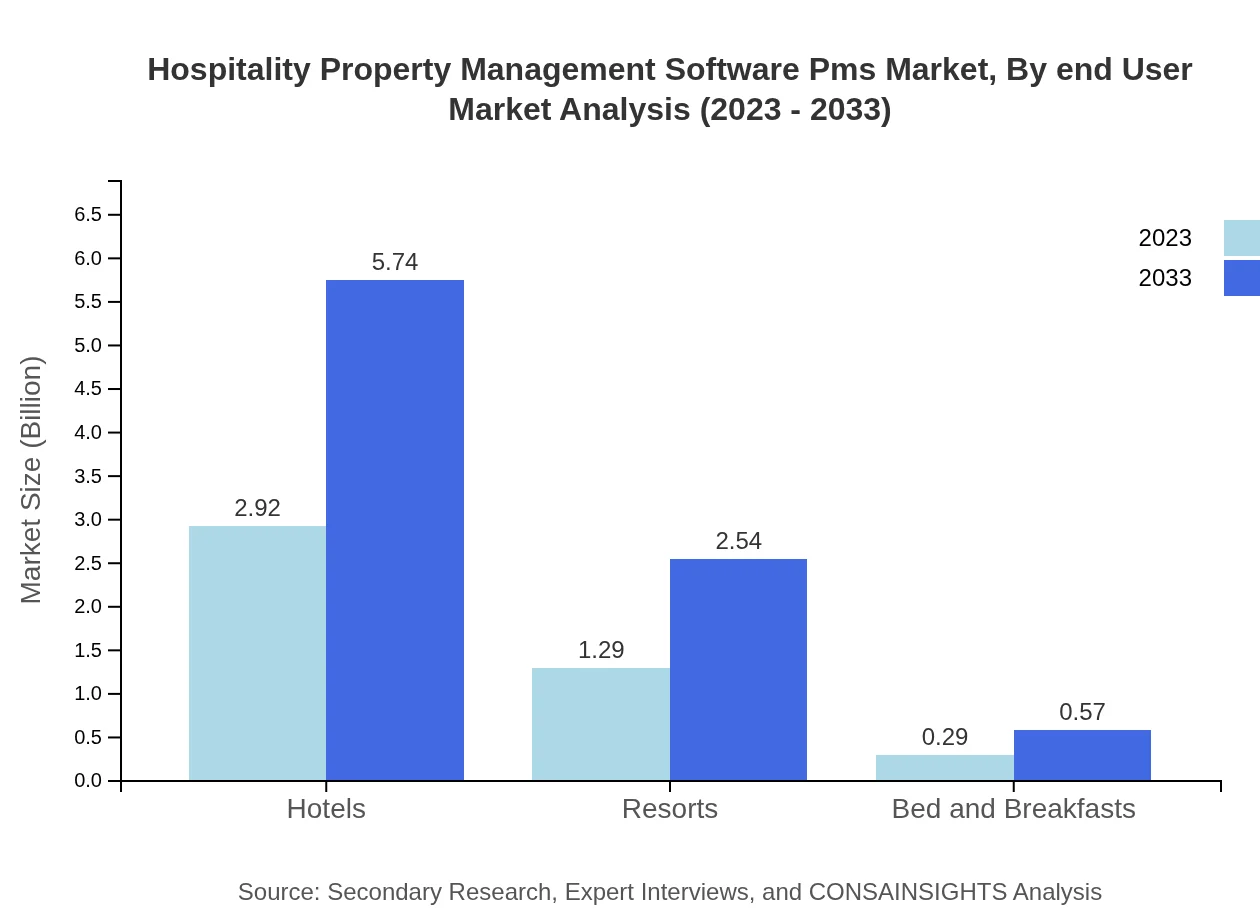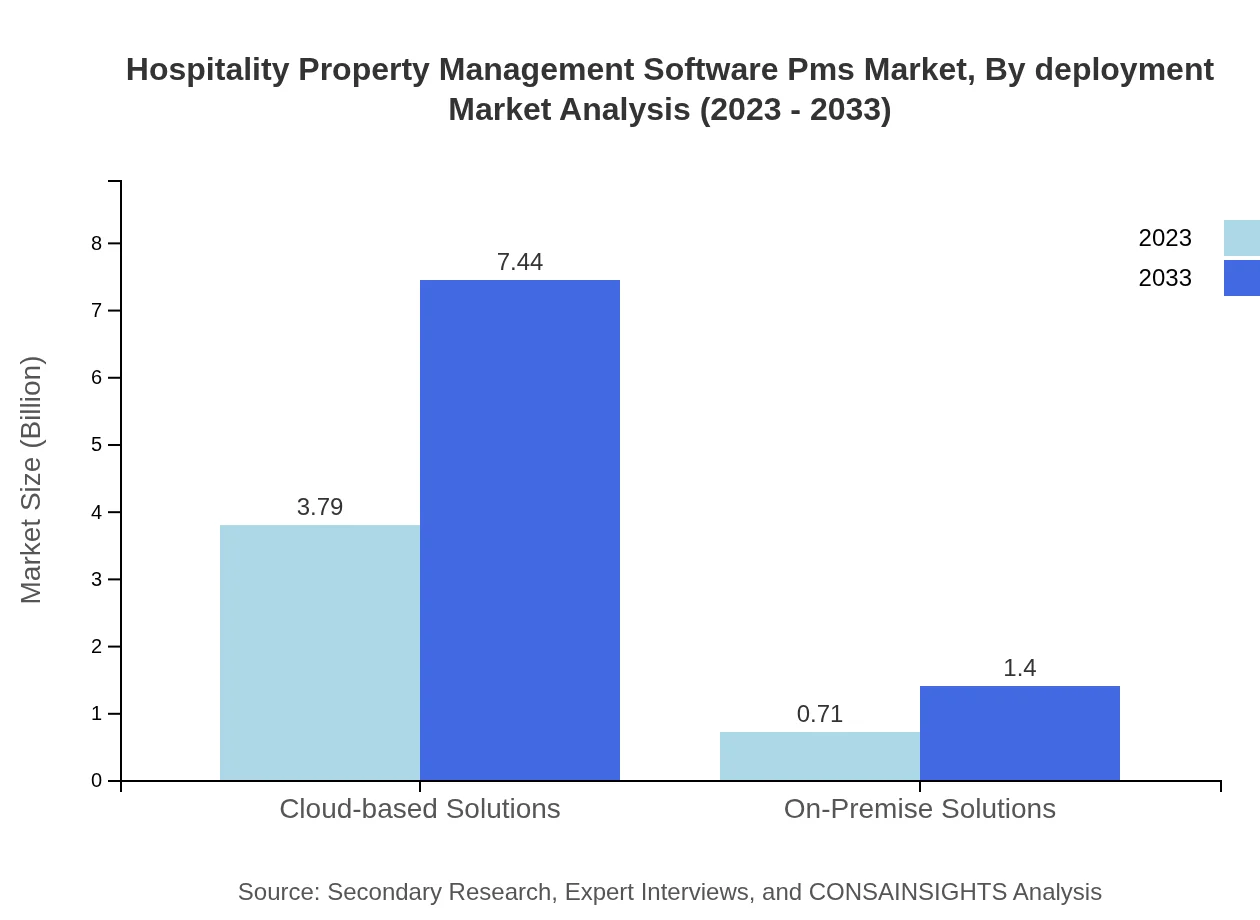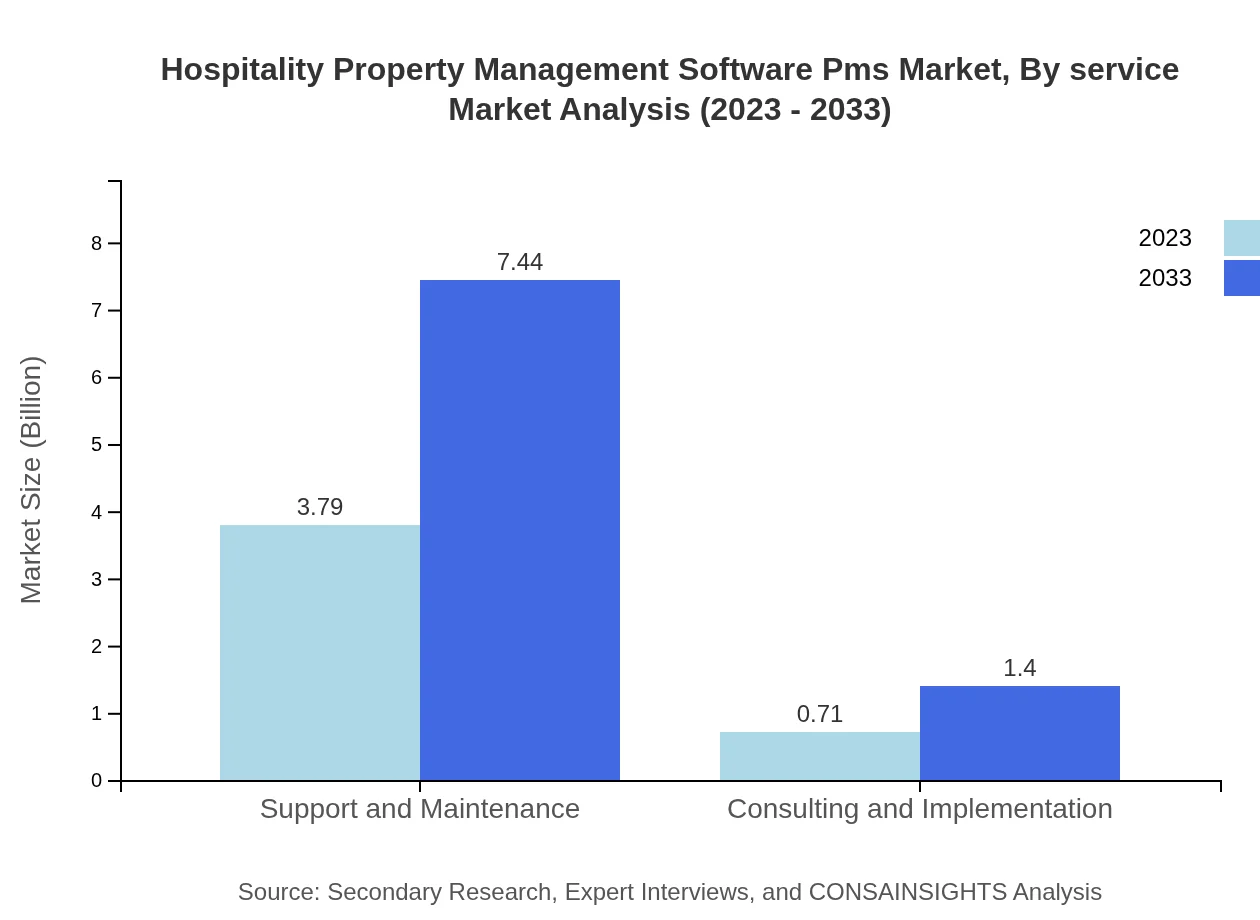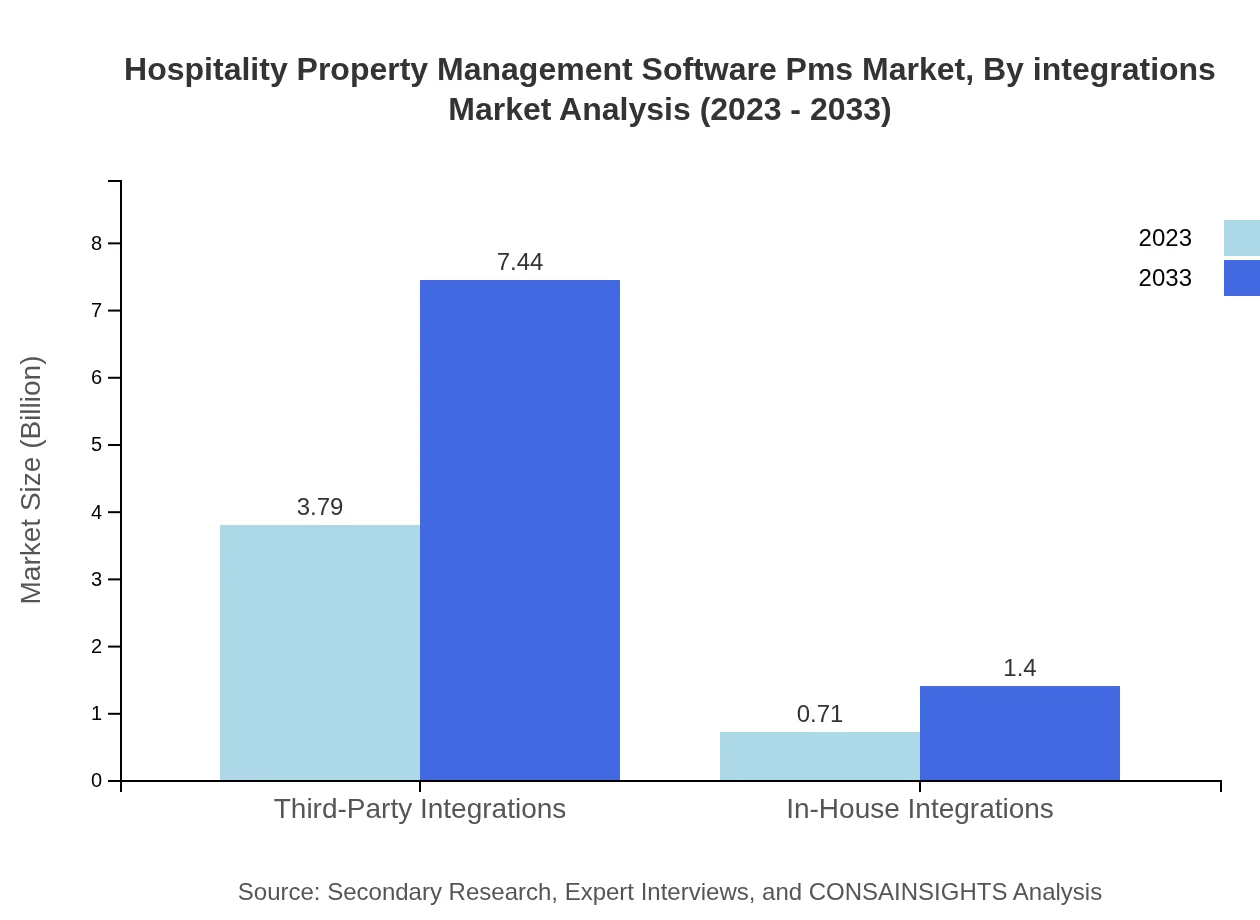Hospitality Property Management Software Pms Market Report
Published Date: 31 January 2026 | Report Code: hospitality-property-management-software-pms
Hospitality Property Management Software Pms Market Size, Share, Industry Trends and Forecast to 2033
This report provides an in-depth analysis of the Hospitality Property Management Software (PMS) market, covering insights on market size, CAGR, technology trends, and regional dynamics, with forecasts from 2023 to 2033.
| Metric | Value |
|---|---|
| Study Period | 2023 - 2033 |
| 2023 Market Size | $4.50 Billion |
| CAGR (2023-2033) | 6.8% |
| 2033 Market Size | $8.84 Billion |
| Top Companies | Oracle Hospitality, Cloudbeds, Protel, eZee Absolute, RoomRaccoon |
| Last Modified Date | 31 January 2026 |
Hospitality Property Management Software PMS Market Overview
Customize Hospitality Property Management Software Pms Market Report market research report
- ✔ Get in-depth analysis of Hospitality Property Management Software Pms market size, growth, and forecasts.
- ✔ Understand Hospitality Property Management Software Pms's regional dynamics and industry-specific trends.
- ✔ Identify potential applications, end-user demand, and growth segments in Hospitality Property Management Software Pms
What is the Market Size & CAGR of Hospitality Property Management Software PMS market in 2023?
Hospitality Property Management Software PMS Industry Analysis
Hospitality Property Management Software PMS Market Segmentation and Scope
Tell us your focus area and get a customized research report.
Hospitality Property Management Software PMS Market Analysis Report by Region
Europe Hospitality Property Management Software Pms Market Report:
Europe's PMS market is estimated to increase from $1.29 billion in 2023 to $2.53 billion by 2033, propelled by high tourism levels and improvements in technology among hospitality businesses aiming for better guest interactions.Asia Pacific Hospitality Property Management Software Pms Market Report:
In the Asia Pacific region, the Hospitality PMS market is expected to grow from $0.95 billion in 2023 to $1.86 billion in 2033. The surge is attributed to the booming tourism industry in countries like China, India, and Japan, alongside the adoption of technology in hospitality services.North America Hospitality Property Management Software Pms Market Report:
North America is witnessing substantial growth in the PMS sector, with market size anticipated to rise from $1.54 billion in 2023 to approximately $3.03 billion in 2033. Increasing mergers and the growing trend of smart hotels contribute to this expansion.South America Hospitality Property Management Software Pms Market Report:
The South American market for Hospitality PMS is projected to expand from $0.32 billion in 2023 to $0.63 billion by 2033. The growth is supported by improvements in domestic travel and an adaptation to modern PMS technologies among local hospitality establishments.Middle East & Africa Hospitality Property Management Software Pms Market Report:
The Middle East and Africa region will see growth in the PMS market from $0.41 billion in 2023 to $0.80 billion by 2033, largely driven by the increasing focus on luxury tourism and investments in hospitality infrastructure.Tell us your focus area and get a customized research report.
Hospitality Property Management Software Pms Market Analysis By Feature
The Reservation Management segment dominates the PMS market, presenting a size of $2.92 billion in 2023, growing to $5.74 billion by 2033. It accounts for a share of approximately 64.91% during the same period. Other significant segments include Front Desk Operations, valued at $1.29 billion in 2023, and Housekeeping Management at $0.29 billion.
Hospitality Property Management Software Pms Market Analysis By End User
The primary end-users of PMS include hotels, resorts, and bed and breakfast establishments. Hotels lead the market with a share of 64.91%, projected to maintain this share by 2033, followed by resorts and bed & breakfasts at 28.7% and 6.39%, respectively.
Hospitality Property Management Software Pms Market Analysis By Deployment
Cloud-based Solutions dominate the deployment segment, with a market size of $3.79 billion in 2023 and a projected increase to $7.44 billion by 2033. On-premise solutions maintain a smaller share, showing growth from $0.71 billion to $1.40 billion.
Hospitality Property Management Software Pms Market Analysis By Service
Support and Maintenance services are critical, accounting for 84.12% of the market share in 2023, growing in line with the increasing complexity of hospitality technology systems. Consulting and Implementation services represent a growing segment, enhancing overall market outcomes.
Hospitality Property Management Software Pms Market Analysis By Integrations
Third-Party Integrations are prevalent in the PMS market, accounting for an 84.12% share in 2023, affirming their importance in enhancing functionality. In-House Integrations are also significant, providing tailored solutions to specific operational requirements.
Hospitality Property Management Software PMS Market Trends and Future Forecast
Tell us your focus area and get a customized research report.
Global Market Leaders and Top Companies in Hospitality Property Management Software PMS Industry
Oracle Hospitality:
Oracle is a leading innovator in hospitality technology, providing comprehensive PMS solutions that enhance guest experiences and optimize hotel operations.Cloudbeds:
Cloudbeds offers a powerful cloud-based PMS that allows properties of all sizes to streamline operations and improve revenue management.Protel:
Protel specializes in front office and property management solutions, serving hotels worldwide with scalable and customizable software.eZee Absolute:
eZee Absolute provides cloud PMS systems that are user-friendly, offering functionalities that cater to a broad range of hospitality needs.RoomRaccoon:
RoomRaccoon automates hotel operations through its all-in-one PMS, focusing on increasing efficiency and driving direct bookings.We're grateful to work with incredible clients.









FAQs
What is the market size of hospitality Property Management Software Pms?
The global Hospitality Property Management Software (PMS) market is valued at approximately $4.5 billion in 2023, with a projected compound annual growth rate (CAGR) of 6.8%, indicating significant growth potential by 2033.
What are the key market players or companies in this hospitality Property Management Software Pms industry?
Key players in the Hospitality PMS market include companies like Oracle Hospitality, Maestro PMS, eZee FrontDesk, and Cloudbeds, among others, driving innovation and competition within the industry.
What are the primary factors driving the growth in the hospitality Property Management Software Pms industry?
Growth in the Hospitality PMS market is driven by increased adoption of cloud-based solutions, rising demand for operational efficiency, the need for remote management capabilities, and enhanced guest experiences through technological advancements.
Which region is the fastest Growing in the hospitality Property Management Software Pms?
North America is the fastest-growing region in the Hospitality PMS market, expected to reach $3.03 billion by 2033 from $1.54 billion in 2023, fueled by technological advancements and a high density of hospitality facilities.
Does ConsaInsights provide customized market report data for the hospitality Property Management Software Pms industry?
Yes, Consainsights offers customized market report data for the Hospitality PMS industry, enabling businesses to obtain tailored insights that align with their specific operational needs and strategic goals.
What deliverables can I expect from this hospitality Property Management Software Pms market research project?
Deliverables from the Hospitality PMS market research project typically include comprehensive reports, data analytics, market forecasts, competitive analysis, and actionable insights that facilitate informed decision-making.
What are the market trends of hospitality Property Management Software Pms?
Current trends in the Hospitality PMS market include the rise of cloud-based solutions, increasing integration of artificial intelligence for better service personalization, and a focus on mobile application development for improved guest engagement.

